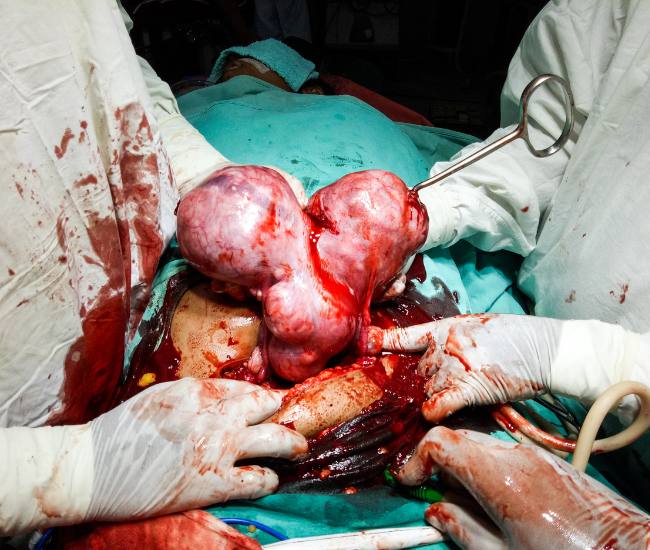
How do testicular tumours present?
Typical presentation of testicular cancer is a young male with a painless swelling in the one testis. Sometimes exceptions to this are possible. Few patients have dull ache or dragging sensation in the testis.
Older people too can get testicular cancer rarely.
Few patients presently directly with symptoms of metastases either in abdomen or in the lung.
What factors predispose to testicular tumours?
The exact aetiology of testicular cancers is not known. Having undescended testis from birth increases the chances of testicular cancer. Hereditary factors play in role in a small fraction of patients.
How are testicular tumours diagnosed?
Any testicular mass has to be investigated seriously. If the doctor feels a mass in the testis then he may ask for a ultrasound of the scrotal region.
In most instances the ultrasound of the scrotum should be able to tell us if a tumour is present or not.
If the suspicion of a cancer is high unlike other cancers, we do not directly perform a biopsy. Biopsy can upstage the disease in some situations.
Usually, we order for blood tests known as tumour markers. This may include tests like alfa fetoprotein, beta HCG and serum LDH. If these tumour markers are elevated it further heightens the suspicion of cancer.
What are the tests done ?
If the suspicion of cancer is high usually, we ask for tests like PET scan to see how much the cancer has spread.
CT scan or MRI of the abdomen is also done sometimes.
How are testicular tumours treated ?
As mentioned previously biopsy is not usually performed for testicular tumours. If the suspicion of cancer is high the surgeon may decide to operate directly. The testis is removed by an incision in the groin, a procedure known as high inguinal orchiectomy.
Further treatment will depend on the stage of the disease. In most cases chemotherapy may be required after surgery.
What is the surgery done for testicular tumours?
The removal of the testis is done through a groin incision known as high inguinal orchiectomy.
Sometimes it is important to address the lymph nodes in the back portion of the abdomen for both diagnosis and treatment, This is known as retroperitoneal lymph node dissection.
Is chemotherapy required for testicular tumours?
Chemotherapy is an important part of the treatment of testicular cancers. The standard regimen uses three drugs: bleomycin. Etoposide and cisplatin and is known as BEP regimen.
Testicular cancers are considered highly curable and cure can be achieved in majority of the cases even when metastatic.
Can a person treated for testicular cancer retain fertility ?
A single healthy testicle is considered sufficient to produce healthy sperms . So a person after treatment for testicular treatment does remain fertile.
For those who need chemotherapy the quality of sperms may reduce after chemotherapy and sometimes sperm banking is advised.
Can testicular cancers recur after treatment? How are they treated ?
Testicular cancer is a highly curable cancer. Most patients achieve a cure. However a small fraction of patients can have recurrence in other organs like lungs.
Recurrent cancers are usually treated by chemotherapy. However for any residual tumour surgery too might be required.
